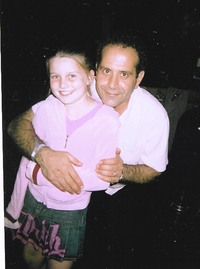Author Joe Konrath gave some advice on his blog on how to create suspense. It read, in part:
Writing is a lot like teasing your younger brother with a secret.
The longer you hold it over his head, the more worked up he gets.
All
stories, no matter the genre, can benefit from suspense. The tension
doesn’t have to be in the form of the bad guy stalking the hero. It can
be much simpler, much less dramatic, but still make the reader want to
keep reading. For example:"You seem upset," Jack said. "What’s up?"
"I’ll tell you later." Herb said. "In private."
And we have suspense.
No, what you have is bad writing and an irritated reader. I like Joe a lot and, ordinarily, I think he gives very good advice. This time, I have to disagree with my friend. The example he shares isn’t suspense… it’s a cheat, something weaker writers use when they don’t know how to generate any real suspense, which comes from character and conflict, not gimmickry.
Suspense is about conflict, about the obstacles between the hero and his goal. Suspense is about stakes — personal, physical, and emotional — and a race against the clock. Suspense is about the unknown and a head-long dive into it. Suspense is not about contrivance and word-games.
The example Joe gives is the literary equivalent of the TV moment when the heavy opens the drawer in his desk to gaze at his gun…or the serial killer sticks a knife in a picture of his next victim…or the bad guy picks up the phone and says to someone "Sgt. Hooker is nosing around. He must be eliminated before he stumbles on our evil plan"… or having key plot points happen during the commerical so the viewer won’t be aware of them.
I was about to leave a comment telling Joe why I think his advice this time is dead wrong but several other novelists, like Rob Roberge and my brother Tod, beat me to it (they also teach writing at UCLA and UC Riverside). Here’s what Rob said on Joe’s blog:
this so misunderstands the nature of suspense…suspense occurs when
the reader says "What will happen next?" It doesn’t occur when the
reader says "What is happening?" This is a cheap gimmick…and good
writing, no matter the genre, avoids gimmicks…to not say what’s going
on (as in the example you use where a character asks a question and
then have it unanswered), is the sign of an insecure text that doesn’t
trust there’s enough story to hold the reader with good writing and
characters, so they use manipulation and beginner’s tricks.
And here’s what Tod said:
I read a book recently by a crime novelist of some renown who shall
remain nameless and this is exactly the sort of drama building he did
— cryptic conversations that augered for a big reveal somewhere later
on, but which only served to annoy me as a reader, primarily because
the narrator knew all the answers but chose not to share them with the
reader. It felt like a short cut in place of actual emotion and drama.
As a writer, I knew what this writer was doing, could see it taking
shape 100 pages before the big reveal came and I thought, in my writer
hat, Oh, this is a silly thing to do. As a reader I thought, as I sat
out by my pool, Oh, give me a break, just tell me the damn piece of
evidence!
What are your thoughts?

